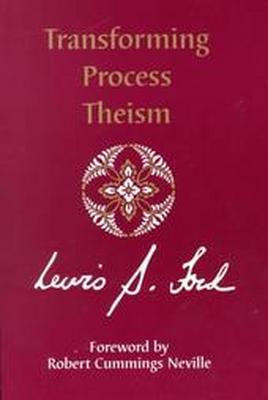
AnthonyFlood.com
Panentheism. Revisionism. Anarchocapitalism.

From Journal of the American Academy of Religion, Vol. 37, No. 2 (June 1969), 200-202. A review of Edward H. Madden and Peter H. Hare, Evil and the Concept of God, Springfield, Illinois: Charles C. Thomas, 1968. Pp. 142.
A Review of
Edward H. Madden and Peter H. Hare,
Evil and the Concept of God
Lewis S. Ford
Whitehead once remarked that “all simplifications of religious dogma are shipwrecked upon the rock of the problem of evil.” Madden and Hare contend that this remark applies to theistic doctrines, and that this failure constitutes a good reason for rejecting theism.
Some theists evade the problem by rejecting natural theology (Barth) or by entering into the “theological circle” (Tillich). Some deny it by arguing that statements about God and evil use different logics. Others attempt to solve it by a variety of stratagems such as the ultimate divine harmony, the need for a contrast to goodness, the need to create moral fibre, the principle of plentitude, the natural depravity of man, and the presence of human freedom. Still others modify traditional theism: Brightman, Whitehead, and Royce are here described as “Quasi-theists,” which our authors assure us is not pejorative.
Such breadth is impressive. However, I missed Berdyaev’s speculations concerning meonic freedom and felt a certain insensitivity to the suggestion that the Incarnation and the Atonement may symbolize God’s way of taking upon himself the evil of the world, its existential conquest not its intellectual “solution.” Otherwise, however, the main options seem to have been canvassed. Since their method is largely atomic, as in a lawyer’s brief, they seek to dispose of their opponents’ arguments one by one with monotonous regularity. A premium is placed upon thoroughness, succinctness, and the scoring of points, with less opportunity to explore more interesting attempts. A good many of their counterarguments stress the amount of quite gratuitous evil present in the world or speculate that a really omnipotent God could have done the job better. Such arguments have little force against purely a priori considerations, such as Hartshorne’s observation that if the presence of evil could possibly disprove God’s existence, then divine existence would only be an empirical and not (as Anselm has demonstrated) an a priori hypothesis (p. 47). Their discussion of Leibniz ignores the a priori character of his contention that a perfect God could not have chosen any other world than the best, so all the allegedly “better possibilities” for the world cannot really be compossible (pp. 58-60).
Our authors neglect to mention the fact that sections of this book have already appeared in print, particularly the discussion of Barth and Tillich (pp. 20-32) in Philosophy and Phenomenological Research 28/1 (September 1967) 58-69 and the examination of Whitehead and Hartshorne (pp. 115-125) in the Review of Metaphysics 20/2 (December 1966) 278-289. Madden and Hare justify their general procedure by rejecting “the Ten-Leaky-Buckets-Tactic” (so named by Antony Flew, p. 53) and by appealing to the principle of diminishing returns. If no separate argument will hold water, why should any combination fare any better? Moreover, if the subtler arguments turn out to be merely variations on themes already disposed of, why need each be exhaustively argued? Thus they note that “the appeal to persuasive power [by Whitehead] appears to be simply a process form of the classical free-will solution . . . which we have previously criticized in detail” (p. 122). What is overlooked by such a method is that refinements may render former counter arguments obsolete. So, too, their fundamental criticism of the free-will solution is surprisingly brief (pp. 74f.), consisting of four arguments, three of which presuppose a concept of omnipotence clearly rejected by process theism.
With regard to Whitehead, Madden and Hare introduce the interesting analogy that his God is like “an especially effective leader of an organization . . . who is powerful enough to guarantee the success of the organization if most of the members pitch in and help.” They suggest two difficulties. “First, if cases can be found in which there has been widespread human cooperation and yet there has been no success, these cases would count as evidence against the existence of such a conditional guarantee. Such cases seem easy to find.” At this point, specific examples are needed but are not supplied. As examples of “widespread cooperation with God” one might point to the rise of the early church or the initial spread of Islam, both of which were eminently “successful,” or ancient Israel’s cooperative successes and non-cooperative failures. Secondly, they argue that the amount of evil in the world suggests that God is not a very persuasive leader. “It is a little too convenient simply to attribute all the growth to God’s persuasive power and all the evil to the world’s refusal to be persuaded.” The measure of persuasion, moreover, is not how many people are actually persuaded, but the intrinsic value of the goal proposed. The only final motivation for action must be the achievement of the good, which alone is purely persuasive. Divine persuasion may be a “still, small voice” amid the deafening shouts and the clamouring of the world, but it wins out in the long run—it brought the universe into being out of practically nothing.
Posted March 25, 2007